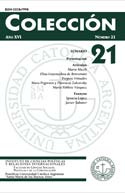Presidentialism and Executive-Legislative relations in Argentina (1983-2007)
Keywords:
Executive-Legislative relationships, Presidentialism, Parliamentarism, ArgentinaAbstract
This work shows that Executive-Legislative dynamics in Argentina for the period 1983-2007, has been one of the causes of institutional instability in that country (and, therefore, of poor economic performance). However, taking into account that semi-presidentialism and parliamentarism, a priori, are not viable options (according to the beliefs and values of the argentine society), the solution would be to reform the system, rather than change it. Argentina should limit the President’s discretionary power and, also, the influence of local party leaders on their national legislators. The underlying assumption is that such a proposal would help to consolidate the traditional role of Congress under presidential regimes, with the resulting gain in institutional stability (and economic performance). Specifically, future research should consider the possible elimination of the presidential prerogative to legislate by decree, and the size reduction of the larger electoral districts in the elections of national legislators.Downloads
Download data is not yet available.
Downloads
Published
2017-11-24
How to Cite
Sabater, J. (2017). Presidentialism and Executive-Legislative relations in Argentina (1983-2007). Colección, (21), 177–212. Retrieved from https://erevistas.uca.edu.ar./index.php/COLEC/article/view/856
Issue
Section
Lecciones y Ensayos
License











 Colección
Colección